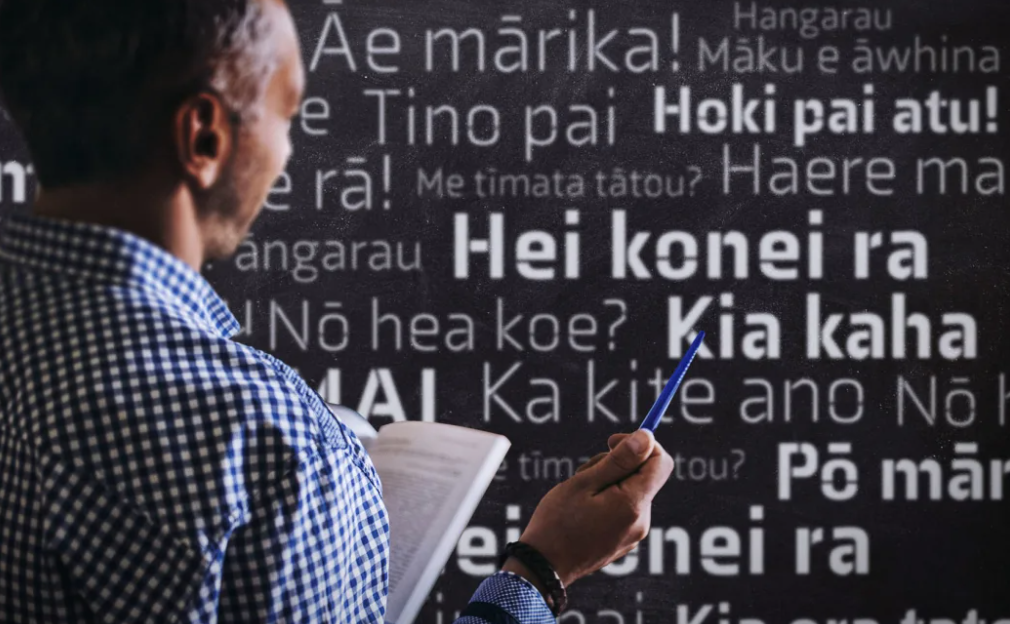Top Stories
Educators Alarmed as Māori Language and Treaty Removed from Curriculums

Educators across New Zealand are expressing serious concerns over the removal of Māori words and concepts from the country’s educational curriculums. At a recent conference held in Wellington, teachers and school leaders reported that references to the Treaty of Waitangi and Māori language are being eliminated from new guidelines for English and mathematics curriculums. They warn that this trend threatens to undo decades of progress in Māori representation in education.
Education Minister Erica Stanford refrained from commenting on the issue, citing what her office termed “unbalanced reporting” by RNZ. The Ministry of Education has also declined to provide a statement on behalf of the government.
Bruce Jepsen, president of Te Akatea (the National Māori Principals Association), highlighted a growing dissatisfaction among educators regarding government actions. He stated, “Over the past year-and-a-half, we’ve seen a constant attack on the positionality of te Tiriti o Waitangi. In various policies and various documents, it’s either not being talked about or it’s simply not present. Each day, there seems to be something eroded or taken away.”
Jepsen emphasized the importance of including the Treaty in educational materials, noting its impact on students’ sense of identity and belonging. “We see and hear waiata, we read kupu Māori and we read kupu English. All students are represented in the curriculum. They can see themselves in it, hear their culture, and feel special in their classroom environment,” he explained.
The principal of Te Akau ki Papamoa school, Dorothea Collier, voiced her dismay at the noticeable reduction of te reo Māori in educational documents. “When the new document came out, the first thing I noticed was the removal of the majority of the te reo Māori. The te ao Māori concepts had been removed that we had put into the document,” she said. Collier added that this change is concerning, as the inclusion of Māori language fosters pride and strengthens identity among Māori students.
Principal of Trident High School, Mikaere October, asserted that the Treaty should be integral to educational reforms. “I feel we moved to a place where we have genuine Treaty collaboration, and that was really evident in action and in policy,” he noted. “What we’re seeing now is that it’s ‘in addition to,’ something tacked on to the end or not mentioned at all in the proposed documents, and that’s really concerning.”
Another principal, Tane Bennett of Maungatapu School in Tauranga, criticized the government’s approach, suggesting it risks regressing the education system. “Taking away someone’s language and identity is a loss of a people and of a culture,” he remarked. Bennett pointed out that effective teaching should recognize and embrace students’ cultural backgrounds. “A lot of principals have seen the benefits of what we can do if we meet the needs of learners, which – for Māori learners – is their cultural needs,” he said.
The educators’ collective concern reflects a broader worry that reducing Māori language and concepts in education could detrimentally affect students’ learning experiences. As discussions continue, many are calling for a reevaluation of the government’s direction in education policy to ensure that all aspects of New Zealand’s diverse culture are represented and valued in schools.
-

 World2 weeks ago
World2 weeks agoPrivate Funeral Held for Dean Field and His Three Children
-

 Top Stories2 weeks ago
Top Stories2 weeks agoFuneral Planned for Field Siblings After Tragic House Fire
-

 Sports3 months ago
Sports3 months agoNetball New Zealand Stands Down Dame Noeline Taurua for Series
-

 Entertainment3 months ago
Entertainment3 months agoTributes Pour In for Lachlan Rofe, Reality Star, Dead at 47
-

 Entertainment2 months ago
Entertainment2 months agoNew ‘Maverick’ Chaser Joins Beat the Chasers Season Finale
-

 Sports3 months ago
Sports3 months agoSilver Ferns Legend Laura Langman Criticizes Team’s Attitude
-

 Sports1 month ago
Sports1 month agoEli Katoa Rushed to Hospital After Sideline Incident During Match
-

 World3 weeks ago
World3 weeks agoInvestigation Underway in Tragic Sanson House Fire Involving Family
-

 Politics2 months ago
Politics2 months agoNetball NZ Calls for Respect Amid Dame Taurua’s Standoff
-

 Top Stories2 weeks ago
Top Stories2 weeks agoShock and Grief Follow Tragic Family Deaths in New Zealand
-

 Entertainment3 months ago
Entertainment3 months agoKhloe Kardashian Embraces Innovative Stem Cell Therapy in Mexico
-

 World4 months ago
World4 months agoPolice Arrest Multiple Individuals During Funeral for Zain Taikato-Fox




















